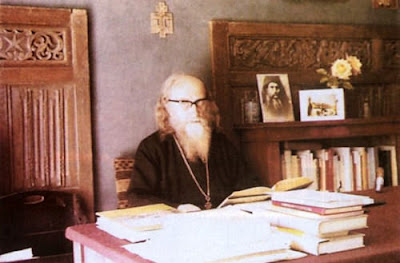In speaking of the significance of almsgiving and mercy, Fr. Cleopa stressed the importance of these virtues by relating the following story:
Emperor Nicephorus of Constantinople reigned from 1078 until 1081. He decided to build a cathedral that would be almost as grand as St. Sophia. When it was ready, the patriarch of Jerusalem, the patriarch of Alexandria as well as the patriarch of Constantinople were all invited to consecrate the beautiful new church built by the emperor. Announcements had been made about the consecration for several months in advance so that everyone would have time to travel to the great city of Constantinople; remember that during that time there were no cars, planes or trains. Everyone had to travel either in carts pulled by oxen, horses or donkeys, and those from great distances had to cross the sea in boats.




